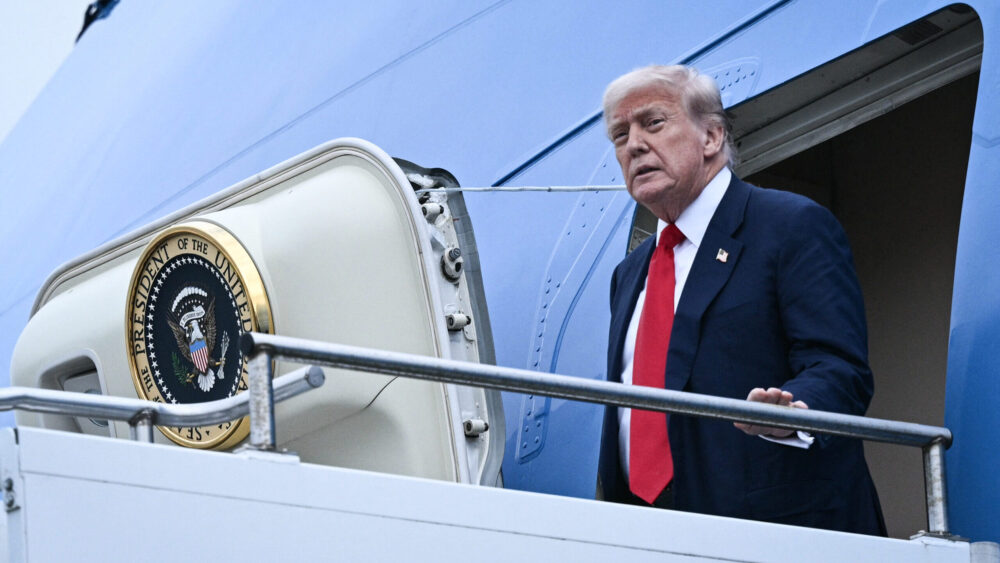U.S. president Donald Trump used the start of his four-day visit to Scotland to deliver a stark warning on illegal immigration, urging Britain and other European countries to take urgent action to protect their borders.
Speaking shortly after disembarking Air Force One at Glasgow Airport, the U.S. president said: “You better get your act together or you’re not going to have Europe anymore. You’ve got to stop this horrible invasion that is happening to Europe, many countries in Europe.”
Trump praised the governments that have resisted mass migration, saying, “Some leaders have not let it happen, and they’re not getting the proper credit… I could name them to you right now, but I’m not going to embarrass the other ones.”
He added: “This immigration is killing Europe.”
The remarks come as the UK faces a renewed surge in illegal Channel crossings, with more than 22,000 small boats arriving so far this year—up around 50 percent on 2024. Protests have erupted in Essex and London over the housing of asylum seekers in hotels, prompting police warnings of a potential “summer of unrest.”
Across the continent, governments are scrambling to respond to mounting public anger. Greece has suspended applications from North African nationals, Portugal has overturned migrant regularisation laws, and Italy has begun detaining rejected asylum seekers in centres based in Albania.
Yet EU deportation efforts remain chronically ineffective. European Commission President Ursula von der Leyen recently admitted that only around 20 percent of illegal migrants ordered to leave the bloc are actually deported—figures widely seen as optimistic.
Michael Spindelegger, director of the International Centre for Migration Policy Development (ICMPD), warned earlier this month that failure to enforce returns sends “a very bad sign for the state of law.” He cautioned that even those who are removed may re-enter later, underscoring the need for a “well-functioning return policy.”
During his visit, Trump is set to meet Prime Minister Sir Keir Starmer and European Commission President Ursula von der Leyen. While playing down the likelihood of major policy breakthroughs, the White House acknowledged the meetings mark a deepening of transatlantic ties.
